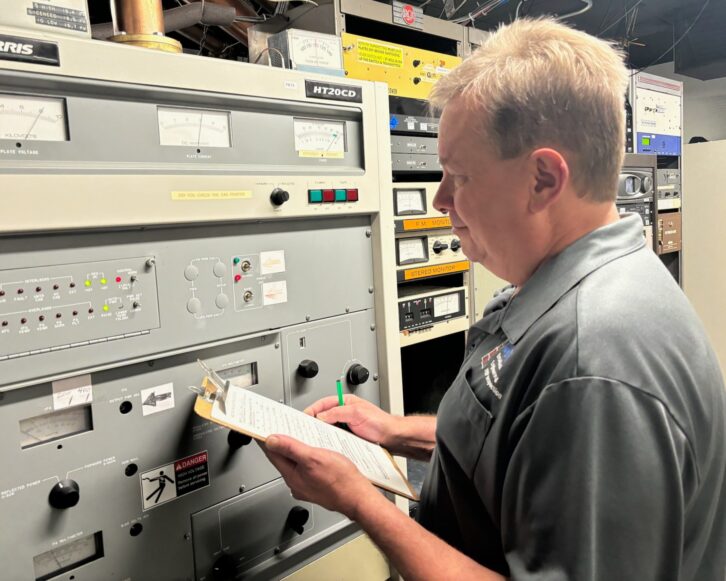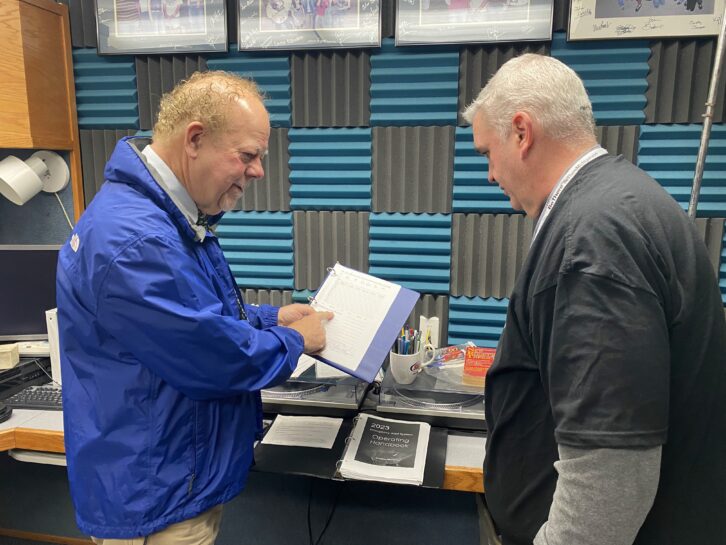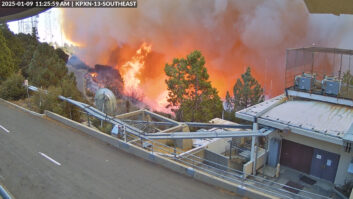It’s helpful to review FCC enforcement actions for a glimpse of the types of regulatory issues and compliance problems the commission focuses on. Yet there is always nuance to what might attract its attention.
Broadcast attorneys and Alternative Broadcast Inspection Program inspectors talked to Radio World about common missteps they see radio broadcasters make.
Unsurprisingly given their resources, smaller broadcasters seem more prone to slipups than large group owners. But much also depends on a given company’s awareness of the requirements and the importance it puts on compliance.
Certain areas tend to draw the attention of the Enforcement and Media Bureaus. For instance, now that every station’s public file is accessible online, the FCC can monitor compliance far more easily.
“The FCC has been paying close attention to quarterly file uploads to the Online Public Inspection File and looking closer at EEO reports,” one regulatory insider said.
Station logs that list EAS activations, tower light checks and RF transmission parameters require weekly review by a radio station’s chief operator, said Blake Thompson, president of BET Broadcast Engineering, who performs most of the ABIP inspections in the states of Ohio, Michigan and West Virginia.
He recommends logging transmitter power daily, or at least weekly with a newer unit, to demonstrate proper operation.

Station logs may be kept manually or electronically, but having electronic records doesn’t absolve the chief engineer of reviewing and signing a log, according to FCC rules.
Stations also must keep an FCC application page on their website and a link to their public file. While these are not part of the ABIP checklist, they’re a common omission.
Stations also must provide specific contact information on their websites for a station representative who can assist any person with disabilities with issues related to the content of the public files, Thompson said.
And make sure the current copy of the EAS handbook, published by the FCC’s Public Safety and Homeland Security Bureau, is filled out at the station’s control point.
Politics, TBAs and fees
Frank Montero, co-managing partner at the law firm Fletcher, Heald & Hildreth, said, “There have been a large number of consent decrees focused on the same issues, like public file and political file violations. EEO violations have been a focus as well.”
Because we are entering a major political year in 2024, Montero said stations should be focused on political broadcasting rule compliance, including lowest unit rate, equal time and political file compliance.
“I recommend to my clients that they designate an employee to monitor their station’s local public file to ensure compliance,” he said. (Read a relevant Radio World article by attorney Gregg Skall.)
The year 2023 was a biennial ownership report year, Montero continued.
“We always find corporate licensees — especially nonprofits with large boards — that have had an incremental transfer of control over the past few years without ever filing a transfer application.”
Biennial ownership reports were due Dec. 1 but if you are late, file the report anyway, Montero said.
Another potential pothole for broadcasters is improper use of FM translators and understanding the “dos and don’ts,” he said.
Further, if your station is in a time brokerage agreement, make sure you have a properly drafted agreement and are aware of what the FCC allows in such cases. Keep the finances and station control separate from the broker, according to another person familiar with the relevant regs and enforcement.
Also, commercial stations need to make sure they are current with their annual regulatory fees. “Being in arrears is certainly a red flag, which can block the processing of applications,” that person said, noting that there have been several recent revocations of broadcast licenses over regulatory fees that went unpaid over several years.
Alerting updates
Larry Wilkins, director of engineering services at the Alabama Broadcasters Association, says some stations fail to keep their EAS infrastructure up to date.
“This includes ensuring they are operating with the correct software and security certificate, monitoring the correct sources and verifying the quality and levels of these sources,” he said.
As part of that compliance, stations are required weekly to review the station log, including all required EAS activations and correcting any observed issues, he said.
Wilkins, the ABIP inspector for Alabama, reminds stations to pay attention to maintenance at the transmitter site — “things like improper fencing around an AM tower, operating at the licensed transmitter power output, tower light monitoring, and maintaining an operational remote-control system.”
Frank Maynard, president of technical services firm Maynard and Associates, says missing EEO reports are a common problem, particularly at license renewal time. “The political file portion of the online public inspection file needs to be kept current, with new information uploaded the same day if possible,” he said.
Because the FCC no longer requires routine logging of transmitter readings, stations may be under the impression that a station log is not required, but that’s not the case.
“I advise stations to keep an accurate station log in one place,” Maynard said.
“Just a single sheet of paper weekly can be sufficient, noting EAS tests sent and received, daily and quarterly tower lighting checks, remote meter calibrations and power output readings. And it needs to be checked and signed by the chief operator weekly,” he said.

Maynard, who performs inspections for the ABIP program administered by the Michigan Association of Broadcasters, said remote meter calibrations and power output checks are sometimes forgotten. He recommends establishing a regular schedule.
“‘As often as necessary’ does not mean you don’t have to do it. And a basic piece of information, the indirect method efficiency factor, is often unknown or hard to find. It should be readily available. I suggest posting it on the transmitter and at the control point,” he said.
On occasion, the geographical coordinates listed on the license don’t agree with the actual coordinates, which can be checked using the satellite view on Google Maps.
“Many deficiencies are simply a matter of good engineering practice, such as keeping documentation and logs at the transmitter site and establishing regular cleaning and maintenance procedures,” Maynard said.
Radio operators continue to receive warnings (and draw fines) for failing to “timely” file various required documents. This is often the case for the Issues and Programs list, due each quarter by the 10th day of the following month, according to one expert.
A station might also encounter a complaint filed by another broadcaster. When one is received, the commission may send an inspector to the station, although our observers say this is less common now given the closure of many FCC field offices.
If you do run afoul of the FCC, the commission can initiate the investigative process by issuing a letter of inquiry — a series of questions regarding the alleged infraction — or it might jump directly to a notice of apparent liability or a notice of violation, which will cite the problem and give the license-holder 30 days to pay a fine or explain its side of the case. A broadcaster can then request a reduction or elimination of the proposed fine, which the FCC calls a forfeiture.
Our experts recommend being active with your state broadcast association, which can provide resources and notices of filing deadlines. They urge stations to take advantage of the ABIP programs, which are administered by the state associations.
Stations that participate in the alternative program receive a three-year exemption from routine FCC technical inspections. That exemption does not apply to inspection of the online public file, online political file or filings necessary to comply with EEO requirements.
The ABA Engineering Academy’s YouTube page has several videos that walk viewers through an ABIP inspection.
What other issues might trip the FCC’s wire? Send a letter to the editor to [email protected].
Enforcement Sampler
Pirate radio enforcement has received ample news coverage in recent years, but there are numerous other examples of recent actions that give a sense of what the commission has been looking for, involving administration, technical operation and programming. You can check out the following Radio World stories here.
- In November an AM station in Texas lost its license for failure to pay about $36,000 in regulatory fees that accumulated over a decade.
- In August the Media Bureau said a Louisiana licensee could be liable for a forfeiture of $12,500 after concerns were raised about the truthfulness of statements made during licensing and construction; the station allegedly swapped antenna type and mounted the antenna at the wrong height without authorization.
- In March the FCC yanked three FM translator licenses in Arizona and Nevada after the licensee was unable to prove operational status of the facilities.
- A Washington state broadcaster was apparently liable for $20,000 for unauthorized operations of an FM translator and making false certifications in an application with the intent to deceive the commission.
- An AM owner in Iowa faced an $11,000 fine in a case involving its online public inspection file and its transmission power levels.
- The Enforcement Bureau proposed a $25,000 fine saying the licensees failed to upload annual EEO reports to their online public files, failed to upload their EEO reports to the web and failed to “broadly recruit” for certain vacancies, analyze their EEO programs or maintain recruitment records.
- Last spring a Colorado low-power FM was assessed a $15,000 fine for airing commercials.
- In late 2022 the Media Bureau issued a $20,000 forfeiture to a California licensee for operating its AM station at the wrong power at night.







